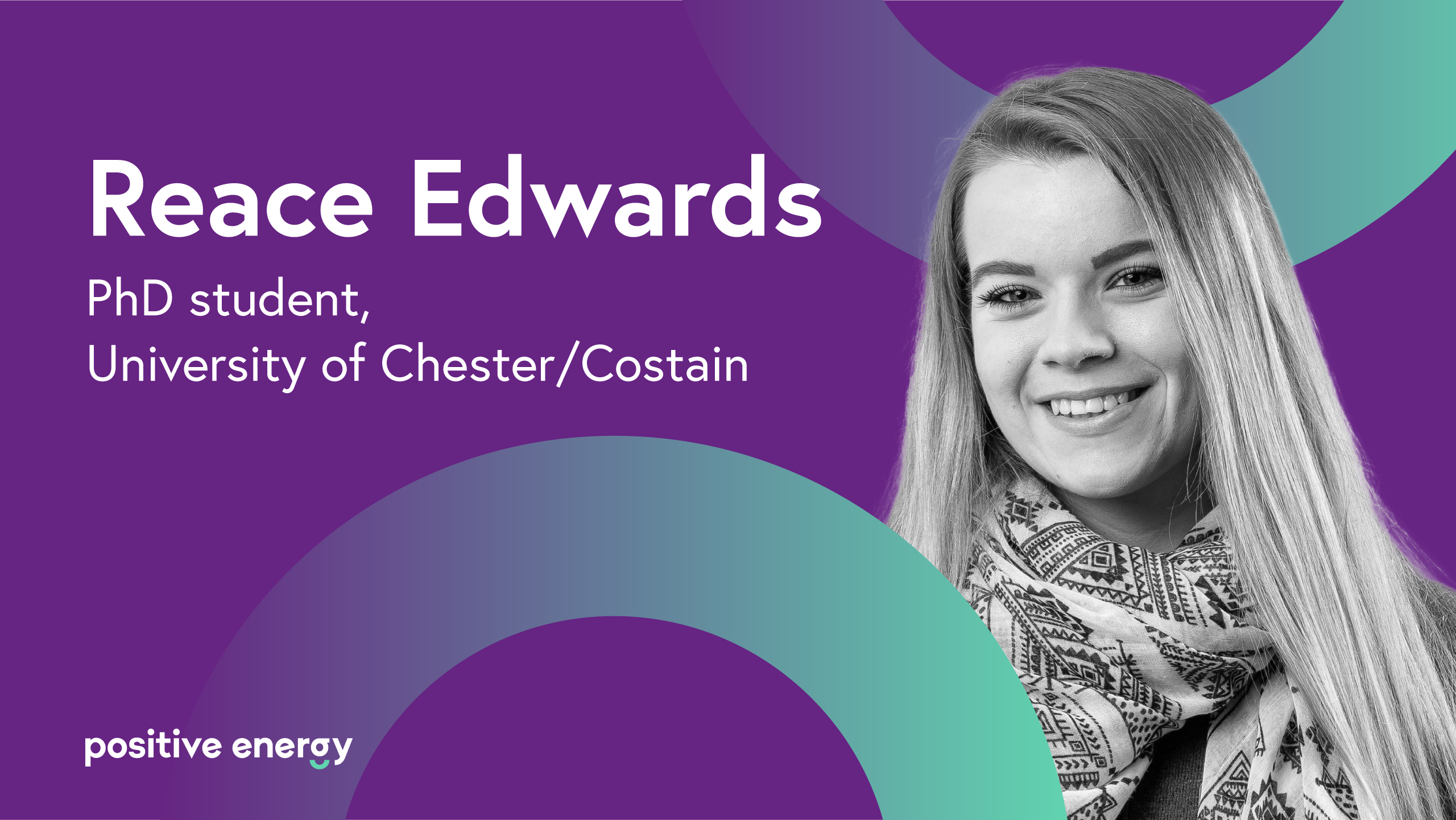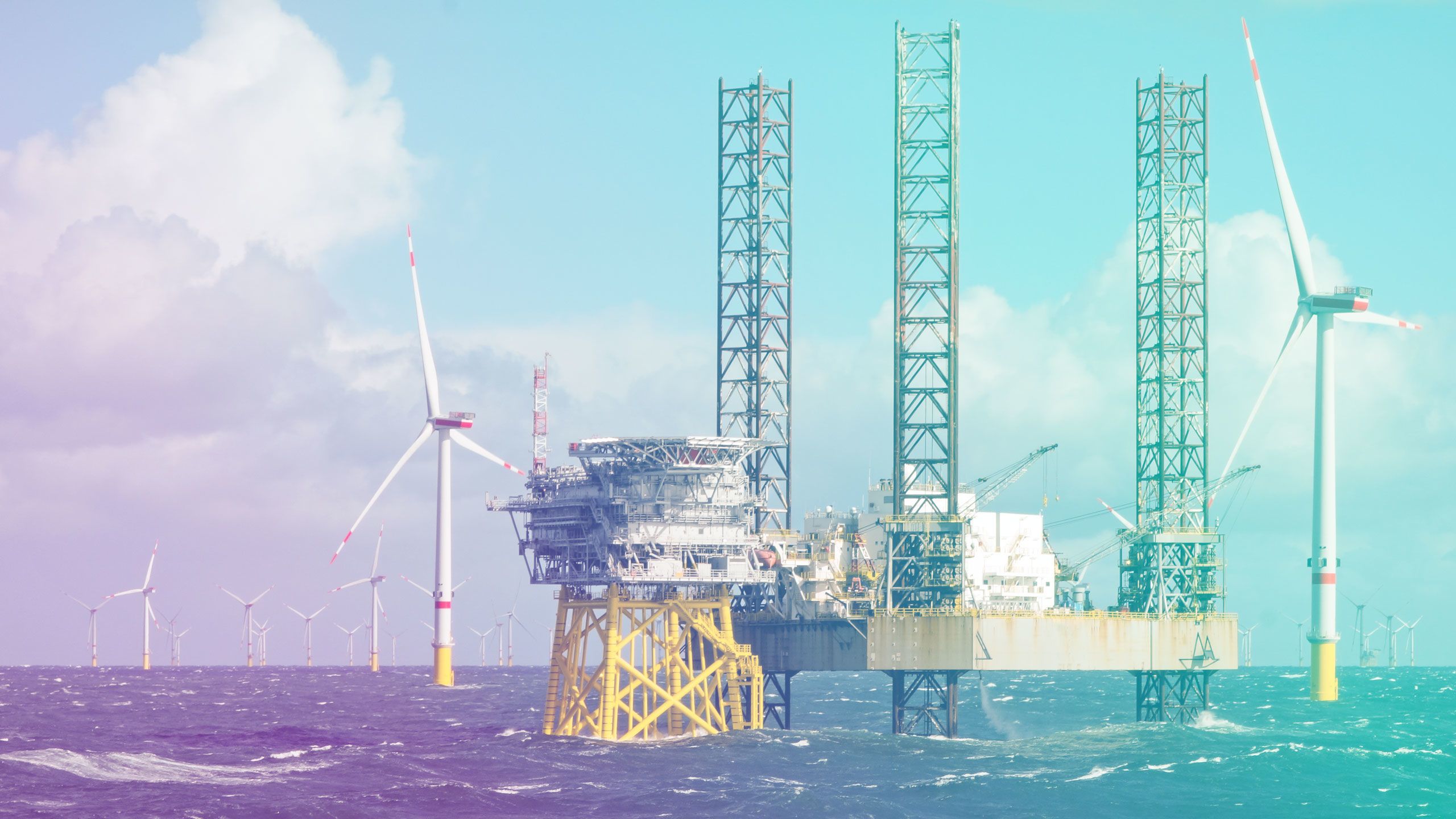
A PhD student developing new low carbon technology in the North West of England.
Chemical engineering graduate Reace (24) is completing her PhD focused on developing the hydrogen network in the North West of England, as the region increasingly becomes a global leader in the move towards cleaner energy. She’s passionate about using her own experience to promote low carbon technologies, like hydrogen, to industry, policy makers, academia and students.
Growing up, I always had a real interest in maths and science – so much so that I used to pretend that I was teaching an imaginary class of students and would go over whatever topic we’d been discussing at school that week. This was mirrored in my grades throughout school which were consistently high for maths, chemistry and physics.
As I got older, I became more interested in the real-life applications of science and technology. After hearing an inspiring talk at school from a chemical engineer, I explored the subject further and then applied (and was accepted) to join the University of Chester.
After learning about the foundations of renewable energy while doing my undergraduate degree, I knew it was something I wanted to explore further. Understanding the technologies needed to reduce carbon emissions and achieve net zero is becoming increasingly important. It’s the main reason why I chose to pursue my PhD, which looks at establishing a hydrogen network in the North West of England – an area with a strong industrial heritage and historical ties to oil and gas. Here, legacy infrastructure is being upgraded and used in combination with new state-of-the-art technology to facilitate low carbon energy operations.
I’m now in my final year of my PhD, which is jointly funded by the University of Chester and smart infrastructure company Costain. It has allowed me to see the ‘bigger picture’ of the role that hydrogen can play. Not only have I been able to look at the technical characteristics of various hydrogen technologies, but I’ve also been able to look at economic, policy, regulation and even social aspects.
Rebuilding society after the COVID-19 pandemic, while also responding to climate change is increasingly being recognised as a priority in countries around the world. Climate change will be front and centre at the COP26 conference in Glasgow in November, where we expect to see countries make ambitious targets on carbon emission reduction. I hope this will be a major step in the right direction for decarbonisation.
While all industries have a part to play, oil and gas has a significant role in the success of decarbonisation. Improving advocacy in technologies, such as carbon capture and storage, and hydrogen, is something that I’m really passionate about. Through my PhD I’ve had numerous opportunities to work with a variety of people involved in developing hydrogen technology.
It’s also important to engage with, and educate, leaders of the future. One standout moment for me was securing funding from The UK Carbon Capture and Storage Research Centre (UKCCSRC) for myself and colleagues to host a workshop for early career researchers. The workshop was centred around hydrogen and carbon capture and storage technologies and sought to identify the barriers and enablers in the move towards cleaner forms of energy. It’s always a great feeling to be involved in promoting low carbon technologies that will have a real impact on the world!
Finding new ways to reduce carbon emissions and play a part in tackling the climate emergency is an exciting and rewarding career. The advice I give to people at an early stage in their career is to build your network and stay up to date with global activity in the area. Be aware of the bigger picture and where your interests or specialisms fit into that. And most importantly, follow your personal interests, be passionate and be inspired by the changes you will make.
How you can have your say
We need reasons to be hopeful, and we hope you’ll find them while exploring our site. We’d love to hear any feedback, stories or questions you have as you join us on this journey.
Get in touch at support@positiveaboutenergy.com

